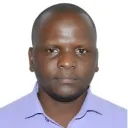

Sponsored session - Two years of global commitment to eliminate cervical cancer: experiences and lessons learnt for secondary prevention
Information
Session organised by Unitaid (Switzerland). Translation (one-way) available for this session: French to English, Spanish to English.
Chaired by Azadeh Baghaki, Unitaid (Switzerland).
Presentations:
1. Are the WHO cervical cancer elimination targets achievable? True cost of achieving targets in LMIC, example of successful models
Marc Hagenimana, Cancer Disease unit in Rwanda Biomedical centre (Rwanda)
Mary Nyangasi, National Cancer Control Program (Kenya)
Karen Milch Hariharan, CHAI
2. Putting the woman at the center: an example of the integrated approach
Claudia Camel Bamaca, Ministry of Health Guatemala
3. Mobiliser les forces de la société civile et des communautés pour l'élimination du cancer du col de l'utérus
Fatoumata Fadika, Coalition of cancer associations in Côte d’Ivoire (COLCC)
4. Panel discussion
Maribel Almonte, International Agency for Research on Cancer
Lee Abdelfadil, The Global Fund to Fight AIDS, Tuberculosis and Malaria
Marion Saville, Australian Centre for the Prevention of Cervical Cancer
Michelle Chevalier, PEPFAR
Description:
When women have access to early screening and treatment of pre-cancers, cervical cancer is one of the most preventable cancers. However, preventive screening and treatment services used in high-income countries are costly and ill-adapted for use in resource-limited and rural settings, where there is the highest burden of disease.
This session will explore how Unitaid-supported projects are proving out affordable, effective package of tools and delivery models to make the World Health Organization (WHO) elimination targets achievable in Low and Middle Income Countries (LMICs). In response to the WHO’s calls to action, Unitaid has so far invested nearly US$70 million to removing access barriers so that all women can be reached with effective, high-performance screening tests and their pre-cancerous lesions treated effectively as to prevent cancer. Through a collaborative approach between Unitaid, its implementing partners CHAI, Expertise France, Jhpiego, and UICC, and the governments of 14 LMICs, effective screening and treatment services with transformational potential are being delivered and are ready for scaleup and wider implementation. This session will share lessons learned from a number of countries as well as explore some of the challenges and opportunities of achieving the global elimination targets.
Speakers





